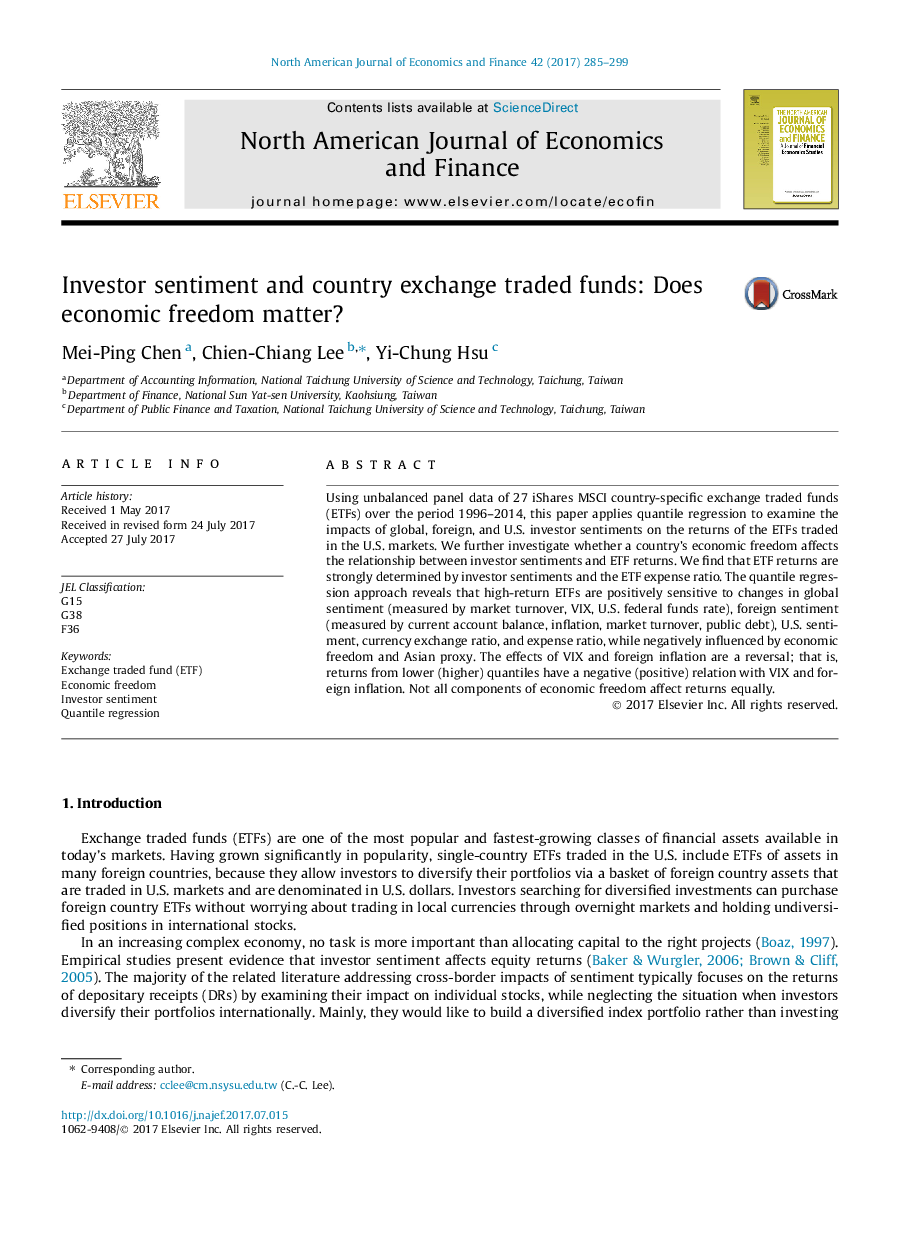| Article ID | Journal | Published Year | Pages | File Type |
|---|---|---|---|---|
| 5102184 | The North American Journal of Economics and Finance | 2017 | 15 Pages |
Abstract
Using unbalanced panel data of 27 iShares MSCI country-specific exchange traded funds (ETFs) over the period 1996-2014, this paper applies quantile regression to examine the impacts of global, foreign, and U.S. investor sentiments on the returns of the ETFs traded in the U.S. markets. We further investigate whether a country's economic freedom affects the relationship between investor sentiments and ETF returns. We find that ETF returns are strongly determined by investor sentiments and the ETF expense ratio. The quantile regression approach reveals that high-return ETFs are positively sensitive to changes in global sentiment (measured by market turnover, VIX, U.S. federal funds rate), foreign sentiment (measured by current account balance, inflation, market turnover, public debt), U.S. sentiment, currency exchange ratio, and expense ratio, while negatively influenced by economic freedom and Asian proxy. The effects of VIX and foreign inflation are a reversal; that is, returns from lower (higher) quantiles have a negative (positive) relation with VIX and foreign inflation. Not all components of economic freedom affect returns equally.
Related Topics
Social Sciences and Humanities
Economics, Econometrics and Finance
Economics and Econometrics
Authors
Mei-Ping Chen, Chien-Chiang Lee, Yi-Chung Hsu,
